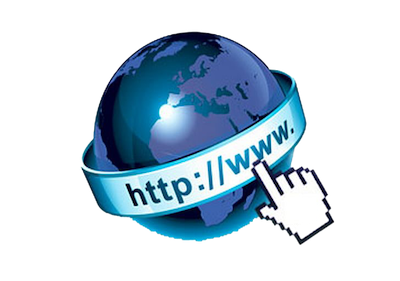Most experienced genealogists are aware of the major "online powerhouses" that contain text or even images of millions of historical records. Such web sites include MyHeritage.com, FamilySearch.org, Ancestry.com, Findmypast.com, Fold3.com, Archives.gov, EllisIsland.org, FreeBMD.org.uk, WikiTree.com, and many more. However, I suspect many of us "old pros" might be overlooking some of the most valuable research sites of all.
If you haven't looked at your favorite search engines, I would suggest you check out what is available. You may be pleasantly surprised.
You might check Google.com*, Bing.com, Baidu.com, Yahoo.com, Yandex.ru, Ask.com, or DuckDuckGo.com.
*NOTE: I usually avoid the use of Google because of all the privacy issues with that service. Admittedly, most of the other search engines have somewhat similar issues. Luckily, there is one delightful exception. I always use DuckDuckGo.com as my default search engine simply because of that company doesn't invade users' privacy by tracking the users and then selling their private information to other companies. See https://duckduckgo.com/ for the details.
 Actually, I have used search engines for years to find all sorts of online information, including info about living and deceased people. However, I have to admit I haven't used the search engines to find genealogy information as much in recent years as I used to. The reason? I simply forgot. In fact, I am rather embarrassed to admit that. I got so wrapped up in the "sophisticated" web sites listed earlier that I usually forgot about the more common search engines.
Actually, I have used search engines for years to find all sorts of online information, including info about living and deceased people. However, I have to admit I haven't used the search engines to find genealogy information as much in recent years as I used to. The reason? I simply forgot. In fact, I am rather embarrassed to admit that. I got so wrapped up in the "sophisticated" web sites listed earlier that I usually forgot about the more common search engines.
However, I recently experienced a memory-jarring "reminder." I wasn't using the simplest of all tools, one that also often produces excellent results. Perhaps you need a reminder also so here is my (updated) recommendation.
My most recent experience involved a search for information about my own father. OK, obviously I already knew a lot about him but not everything. My father passed away 31 years ago and I certainly remember a lot of detailed information about him. However, he died several years before the invention of the World Wide Web. Could the Web provide any information about a man who never heard of the Web?
A relative of mine and I were discussing my father’s life recently and we both knew he belonged to a certain men's fraternal organization but neither my relative nor I remembered all the details. I had a vague recollection that Dad was a "grand master" (or a similar title) of the local lodge for several years. My relative stated, "I don't remember that." I certainly did not remember the details either.
A quick check of my favorite search engine refreshed memories I had not thought about for 31 years. Yes, Dad was the "grand master" for quite a number of years, according to the rather lengthy description of that lodge listed online.
Later, I started performing searches on several other deceased relatives: aunts, uncles, cousins, and even information about my great-great-grandfather who died in 1887. I even picked up some new (to me) information about great-great-granddad.
After poking around online looking for ancestral information, I found the searches worked well for people who lived the last half of the twentieth century. As I looked for older and older information, I found less and less information was available but occasionally bits and pieces of information could still be found. Even my great-great-grandfather, a farmer who died in 1887, more than 100 years before the invention of the World Wide Web, was listed with several significant facts about his life.
For information about politicians, royalty, senior military officers, and other notable individuals, you may occasionally find limited information even back into the Middle Ages.
NOTE: When I searched for my great-great-grandfather's name, I wasn't expecting much. Luckily, another person who is a genealogist and appears to be a very distant cousin of mine had posted information about HER ancestor who just happened to be the same man. Her online data provided me with two (probably) accurate facts about great-great-granddad that I did not know previously.
My task for this summer is to visit his grave in Maine and then visit the local town clerk's office to see if I can verify the information.
In my father’s case, he had a rather common name. When I searched for his name, I found more than a dozen people listed who had the same first and last names. However, his middle name was unique. I had no difficulty in finding the several records about him that I wanted. If he had an even more common name (How many John Smiths are listed?), I probably could have narrowed the search by adding the name of the town where he lived, the state, his occupation, or other identifying information.
Summation:
Information may be found wherever you might find it. Yes, the online genealogy sites are excellent sources of information and I probably will continue to use them frequently. However, once I exhaust the obvious searches, I will start looking for less obvious sources of information. However, I will never refer to the World Wide Web as "less obvious." Indeed, it will be one of the more valuable resources that needs to be checked.
I hope you will do the same.